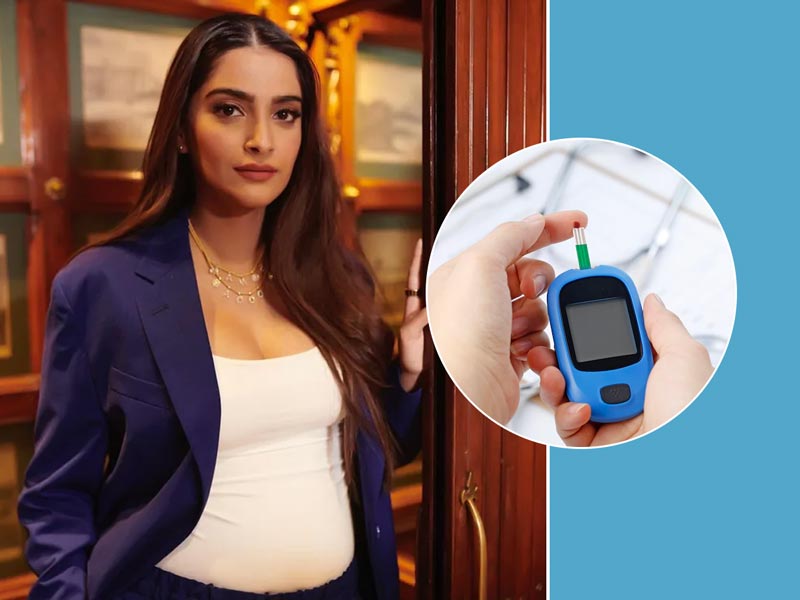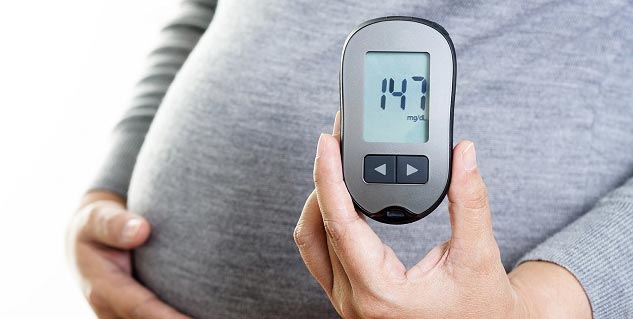
Recently, Sonam Kapoor announced her first pregnancy with husband Anand Ahuja. Earlier, the actress had shared with everyone that she has type 1 diabetes. Well, having diabetes means that you and your baby are more at risk of serious health complications during pregnancy and childbirth. There are risks in every pregnancy, but if you have type 1 or 2 diabetes the risks are higher for both the mother and the baby. No one can avoid these risks completely, but you can reduce them if your pregnancy is carefully planned.
Being pregnant with a long-term health condition is different for everyone. Some women may find it more difficult than others. Therefore, you also need to take care of your emotional and mental health alongside. Onlymyhealth editorial team spoke to Dr. Deepa Dewan, Associate Director & Head of Unit Obstetrics And Gynaecology, Max Hospital Gurgaon, to know about the complications involved in type 1 diabetes and pregnancy, and things that a woman should take care of.
Complications with diabetes and pregnancy

Women who have type 1 diabetes can have a safe pregnancy and a healthy baby, but it's important to monitor diabetes complications that could worsen throughout pregnancy, such as high blood pressure, vision loss, and kidney disease. Here are the complications that a woman can go through if she is pregnant and has type 1 diabetes:
- Insulic resistance
- Preeclampsia
- Miscarriage
- Defects in the development of baby
- Premature delivery
- Severe diabetes complications
- Shoulder dystocia
Tips to manage type 1 diabetes for healthy pregnancy
Most women with diabetes have a healthy baby. But planning for pregnancy when you have diabetes is really important. Everyone's experience of pregnancy is different, and planning for it is important whether you have type 2, type 1, or another type of diabetes. According to Dr. Deepa, here are some tips to manage type 1 diabetes and pregnancy:
1. Manage HbA1c
It’s safest to keep your HbA1c level below 48mmol/mol. You should get your HbA1c checked before you stop using contraception. This is because a high HbA1c level can affect how a baby develops. This is really important in the first trimester (first 8 weeks of pregnancy), because the baby’s organs are developing. If yours higher than 48mmol/mol, taking steps to safely bring it down will help reduce your risks.
2. Folic acid

Your doctor or nurse will prescribe you a high-dose folic acid (5mg) to take as soon as you decide you want to get pregnant. You should be taking folic acid 5mgs each day at least 12 weeks before you conceive as this also reduces the risks to your baby. You’ll then need to keep taking this until you’re 12 weeks pregnant.
3. Keep a check on blood sugar levels
You’ll also need to check your blood sugar levels more regularly at home. This is so you can try to keep them in a safe range during the day. If you have type 1 diabetes, you’ll already have a blood sugar testing kit, but make sure it checks for ketones too.
Also read: What Is Gestational Diabetes? Know Causes, Symptoms, Prevention and Treatment
4. Keep consulting doctors
You’ll need to monitor your health and your baby’s health more often, so align yourself with doctors you trust and who ideally have experience with mothers who have Type 1. It is important to go for regular checkups to your doctor.
5. Healthy diet and exercise
It’s important to have a healthy, balanced diet. This will help you keep your blood sugar levels under control and reduce the risk of complications. How much you eat during a meal is just as important as what you eat. If you have always been active, it’s usually safe and healthy to continue to exercise at the same level during pregnancy. If you have type 1 diabetes, exercise and sport affects your blood glucose levels. Drink plenty of water!







